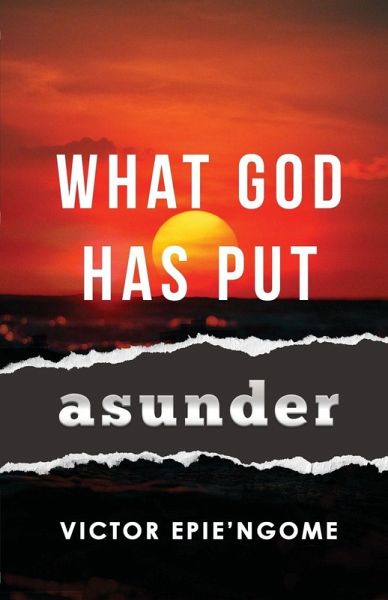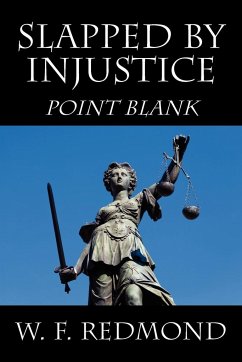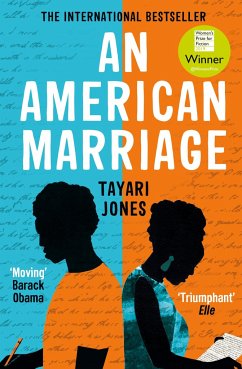
What God Has Put Asunder
Versandkostenfrei!
Versandfertig in 1-2 Wochen
26,99 €
inkl. MwSt.

PAYBACK Punkte
13 °P sammeln!
What God Has Put Asunder sounds like a misquote of Mark 10:9, the biblical consecration of marriage. But can a marriage fraught with infidelity, violence and abuse be considered as put together by God? Weka does not think so. She had reluctantly settled for Miche Garba as the lesser evil of two suitors who were being foisted on her by the authorities of the orphanage where she grew up. They stonewalled against her pleas to be on her own, claiming it would make her vulnerable. Or were they afraid she might become a permanent liability to the orphanage? Garba turns out a cheating, unloving partn...
What God Has Put Asunder sounds like a misquote of Mark 10:9, the biblical consecration of marriage. But can a marriage fraught with infidelity, violence and abuse be considered as put together by God? Weka does not think so. She had reluctantly settled for Miche Garba as the lesser evil of two suitors who were being foisted on her by the authorities of the orphanage where she grew up. They stonewalled against her pleas to be on her own, claiming it would make her vulnerable. Or were they afraid she might become a permanent liability to the orphanage? Garba turns out a cheating, unloving partner, squandering on his many concubines, the proceeds from the farms and lands Weka inherited from her late parents, while neglecting her upkeep and her children's. At the height of the disaffection, Weka runs off with her children to rehabilitate her family estate. Having failed to forcefully bring them back, Garba sues Weka for abandoning her conjugal home. Will the court sunder the marriage of inconvenience? And would it help matters if Weka's full name were "West Kamerun"? This should unmask other ticket names like Sister Sabeth and Father UNOR. For these two What God Has Put Asunder is a call-out for double standards. Can they belatedly remedy the injustice of denying Weka the separate status which they granted, at the same time, to many other damsels who, to date, are far less endowed and more vulnerable than she was?











